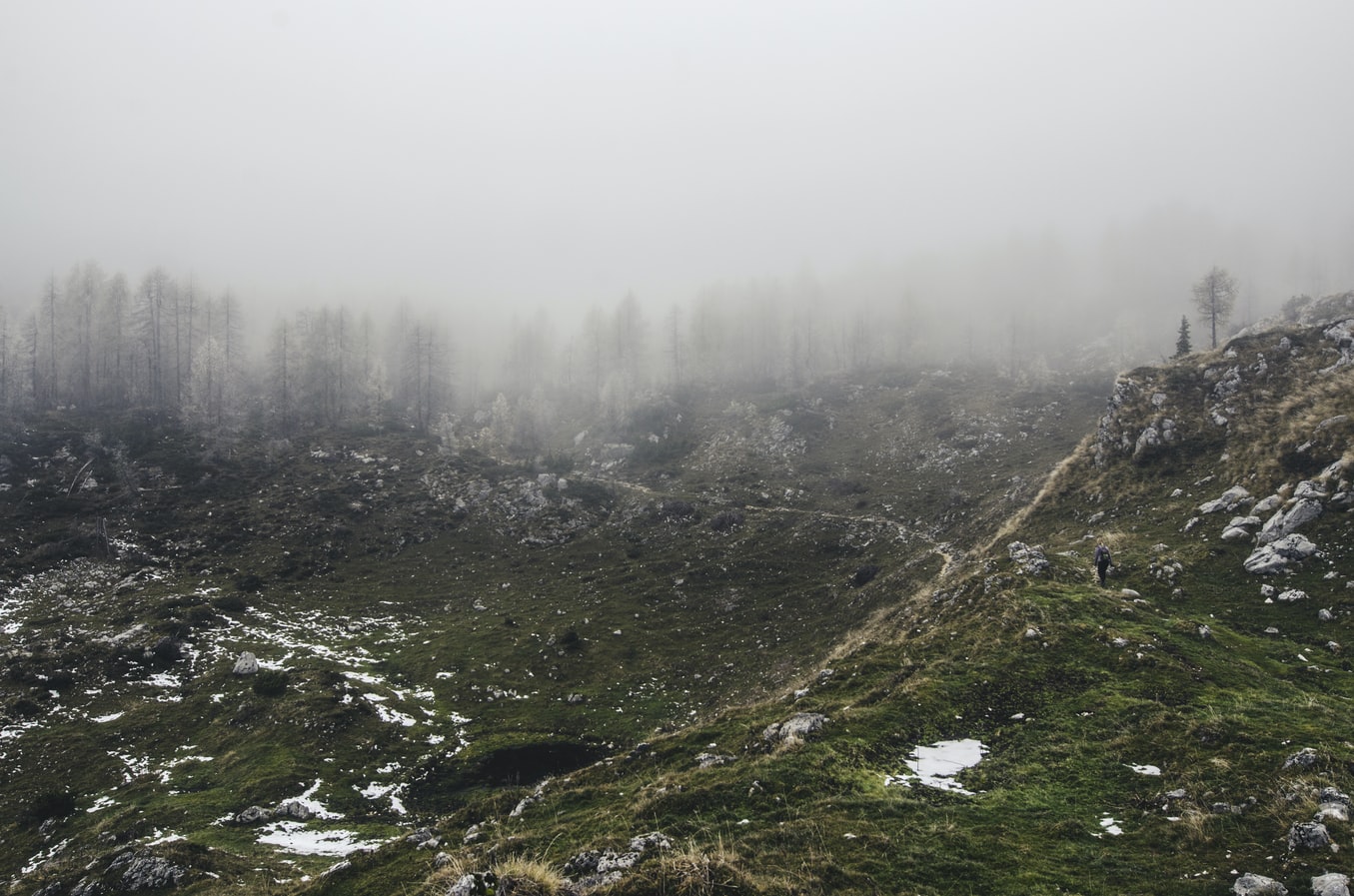Exile: A Path to a Bright Future

"Anywhere with Jesus I can safely go . . ." When I was a child attending church, we often sang that chorus on Sunday nights. And our congregation sang the chorus with exclamation marks: "Anywhere! Everywhere! Fear I cannot know."
I thought of the song while pondering the psalmist's question: "How can we sing the songs of the LORD while in a foreign land?" (Psalm 137:4). At various times in our lives, we feel we're in some foreign land—exiled from the familiar, from all we had relied on, planned, and hoped for.
I learned about exile while teaching for Hospice of Taiwan. As I visited Chiang Kai-shek's estate, an army colonel explained that the generalissimo had selected this spot outside Taipei because the terrain reminded him of his home on the mainland. For years he was obsessed with returning to power on the mainland. Soon, I was informed, he would be buried on Taiwan. Exile had become permanent.
Whenever I visited my mother in the nursing home she begged, "I want to go home." Never did she accept my answer, "Mother, this is home now!" Even the best nursing home we could afford was an "exile" to her.
Many people find themselves in some form of exile—emotional, financial, marital, or even separation from their communities of faith. How can we do well in exile? How can we sing the Lord's song during such a season?
Do not catastrophize. Hand-wringing is not a fruit of the Spirit. Exiles moan, "Woe is us . . ." as if this is the final line on our faith resume. Paul nudges us, "Do not catastrophize about anything, but in everything, in prayer and petition, present your requests to God" (Philippians 4:6, author's paraphrase).
See-and seize-the exile as raw material for the future. What might God want to teach us in exile? Candice Carpenter, chief executive officer of a dot.com start-up, after losing everything in the tech bubble bust, wrote powerfully from her exile. People chided, "Didn't you used to be somebody in the Silicon Valley?" People rarely prophesied, "Candice, you will again be somebody."
In her book Chapters, Carpenter argues that our willingness to learn in exile shapes our futures. Eleanor Roosevelt observed, "You gain strength, courage, and confidence by every experience in which you really stop to look fear in the face. You are able to say to yourself, 'I lived through this horror. I can take the next thing that comes along.'" Exile stimulates courage.
Verbalize the losses. Strong silent types do not do well in exile. Exile is no time to sing, "I did it my way." Exiles need others while they navigate the loss of the familiar and survive—and thrive—in the land of the unknown. We find aid and comfort when we sit with a trusted friend over a cup of coffee. We gain strength when we sit with a counselor and voice the loss or our fear of the permanency of exile. We find hope when we ask for prayer in a small group.
Let God use the losses. Charlotte Czillinger said, early in her exile from the familiar after her daughter's murder, "If life experiences are not used, they are wasted."
When in exile, it's not where I am that matters, but whose I am. Even in exile God knows my name. God's love reaches everywhere. God will work in exile to bring hope in ways I may not even anticipate or comprehend.
God will never be permanently hamstrung by any of our circumstances. Consider the experiences of Joseph in Genesis, chapters 37, 39, 40, and 41. God used Joseph's exile from his family and from Potiphar's house to prepare him. Before his season of greatness he endured the aloneness of separation.
In Taiwan I spoke with young adults who had watched parents and grandparents slowly accept the permanence of exile and announce, "We are not returning to the mainland." Perhaps the economic miracle of Taiwan reflects Jeremiah's guidance to exiles: "Build houses and settle down, plant gardens and eat what they produce. Marry and have sons and daughters, find wives for your sons and give your daughters in marriage, so that they have sons and daughters" (Jeremiah 29:5-6). Sounds as though God is saying, "Live in the present. Trust me to bring hope and a future out of exile." God leaves no room for sabotaging bitterness when he says, "Plant gardens and eat what they produce."
This may not be the fruitful place where you expected to be in this stage of your life. But see what might grow in this place. Be open to new experiences. Then God prods, "Pray to the LORD for it, because if it prospers, you too will prosper" (Jeremiah 29:7).
Exile has peculiar dimensions of time. It gives you no time off for good behavior. I find significant hope in the words of John Claypool. In his book, God the Ingenious Alchemist: Transforming Tragedy into a Blessing, he wrote, "If you are breathing, it is still too early to tell about the impact of any event in our lives."
Harold Ivan Smith, a faculty member for the American Academy of Bereavement and author of When You Don't Know What to Say (Beacon Hill Press of Kansas City), is a single adult who frequently ministers to other singles.
Please note: All facts, figures, and titles were accurate to the best of our knowledge at the time of original publication but may have since changed.




